
Ready to get certified?
Free CDCES Coach App

Subscribe
eNewsletter
Download
Free Med Pocket Cards
Coach Beverly’s Diabetes Cheat Sheets
Our Diabetes Cheat Sheet page is brimming with useful information for your clinical practice and exam success. We update these sheets at the beginning of each year, based on the ADA Standards of Care and the latest evidence.
Scroll down to download, print, and share with your colleagues & community!
Our most popular and helpful reference “cheat” sheets include:
Clinical References, Meds & Exam Study Sheets
This one-page algorithm is an enlarged and printable version of the latest medication treatment strategies excerpted from ADA Standards 9. This handy reference sheet is great for your clinical practice and to study for the certification.

Hypertension & Diabetes | ADA Guidelines
A helpful algorithm to determine the best approaches and next steps to achieve BP targets in people with diabetes.
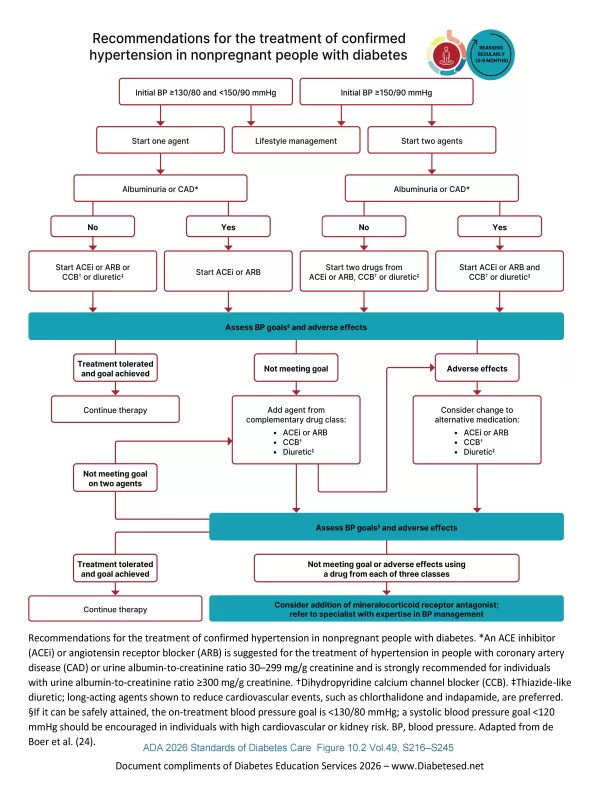
Indications for GLP-1/GIP RA’s for Diabetes, Weight, CVD and Other
An at-a-glance summary chart of indications for the available injectable and oral incretin therapies.
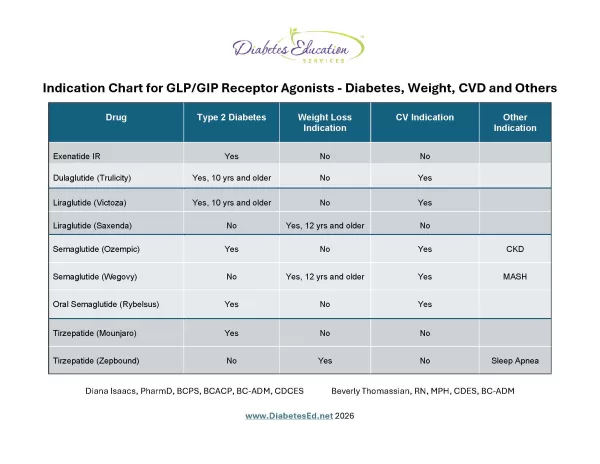
Immunization Schedule for People with Diabetes
Based on the latest Standards of Care, we put together this chart that details the types of vaccines, and when and how often they are recommended for people with diabetes. This quick reference is a perfect exam study tool and a helpful addition to your clinical practice.
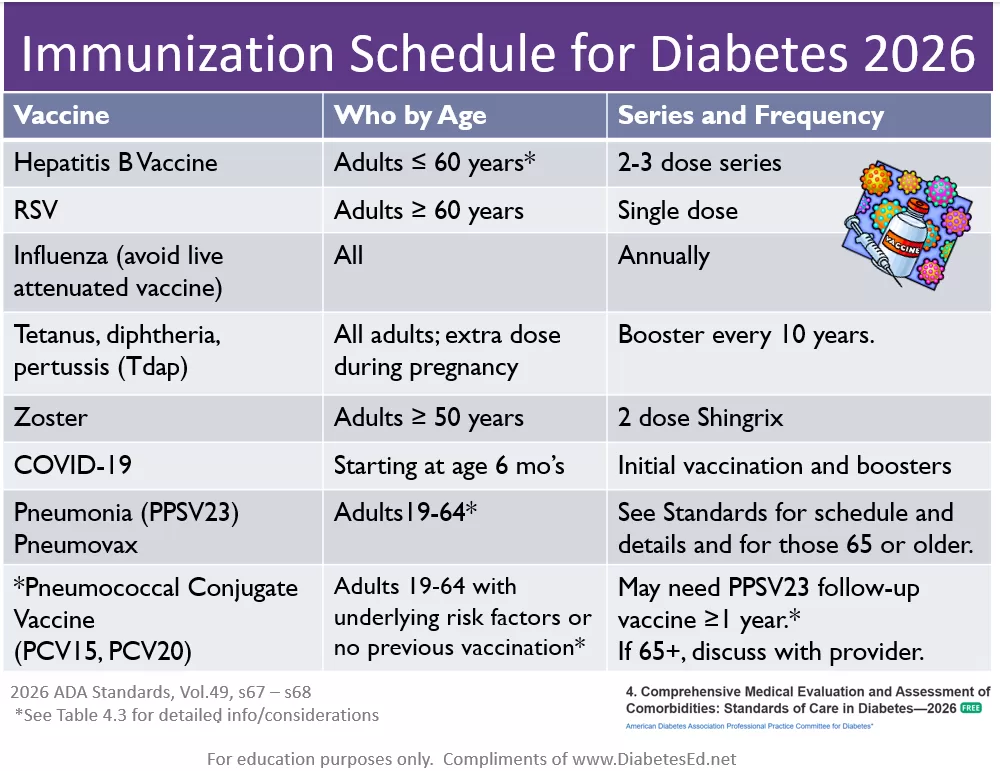
Insulin Storage Cheat Sheet
Provides all kinds of important details on the storage of different types of insulin pens, vials, and more!
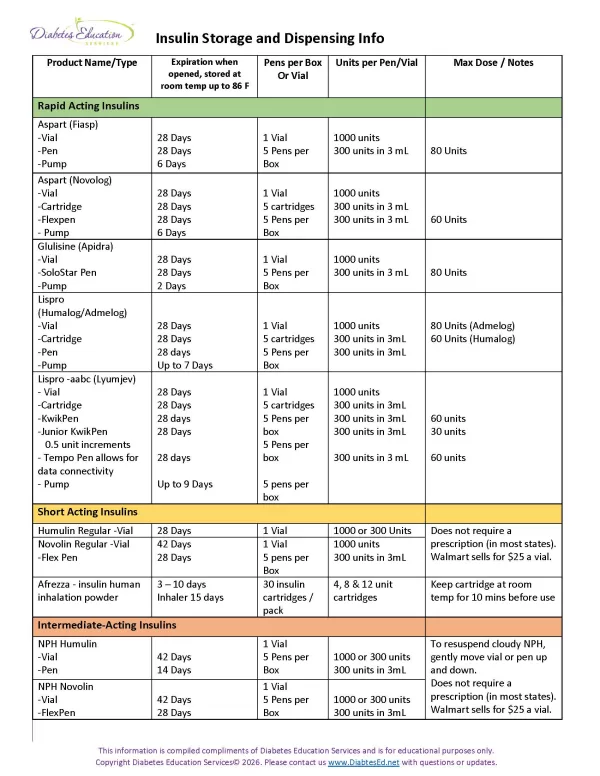
Landmark Studies
A short cheat sheet that highlights the major diabetes trials and the significant findings.
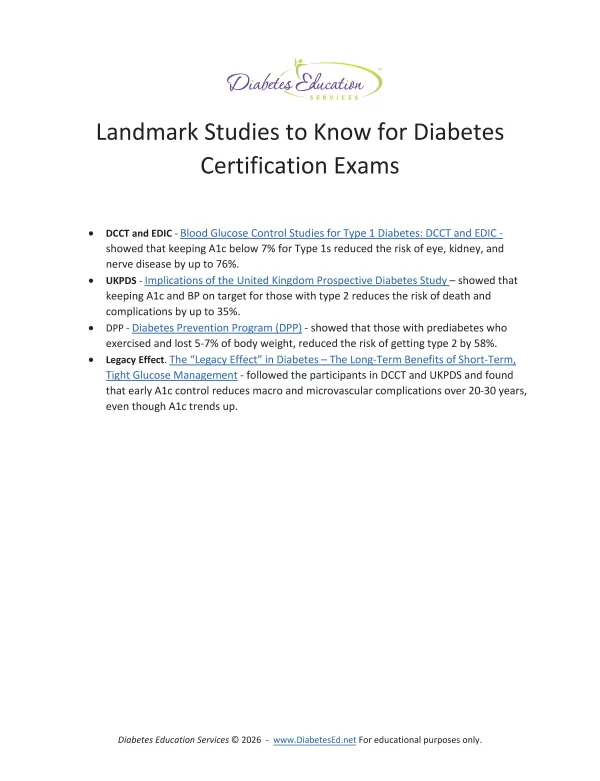
Lipid and Hypertension Medications Summary Sheets
These summary sheets are helpful for your clinical practice and preparing for certification exams. For exam success, be familiar with the general concepts, (side effects and precautions) of these medications.
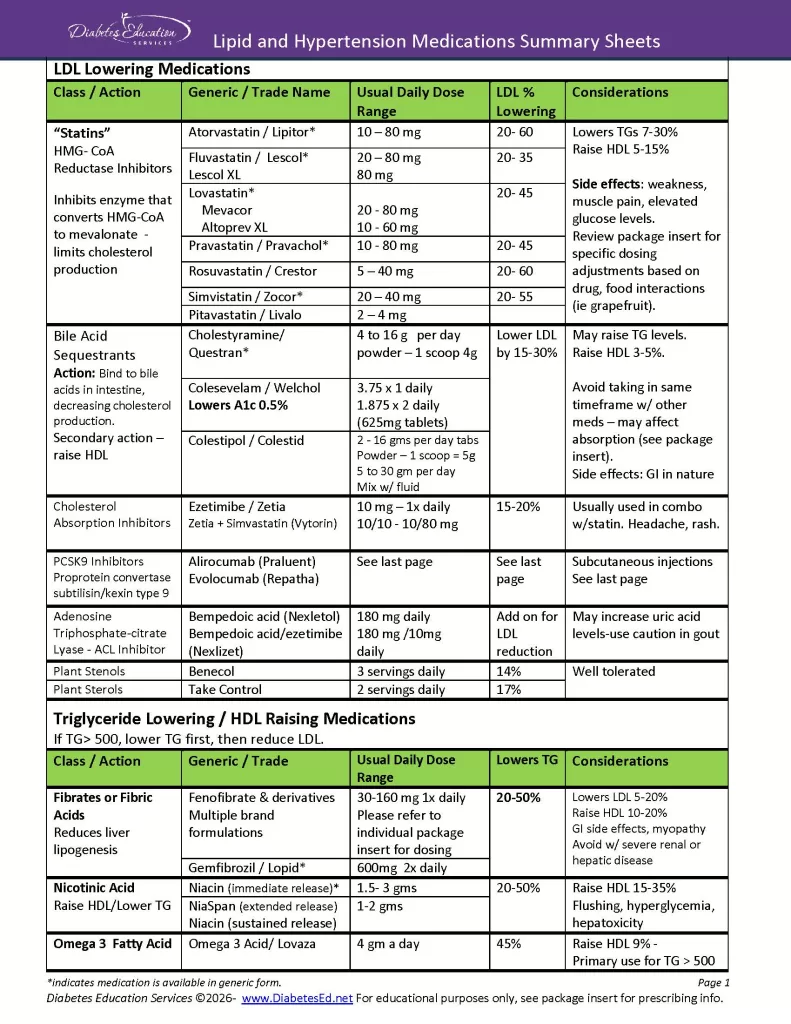
Neuropathy Treatment for Diabetes
This one-page summarizes approaches to treat diabetes neuropathy. This handy reference sheet is great for your clinical practice and to study for the certification.
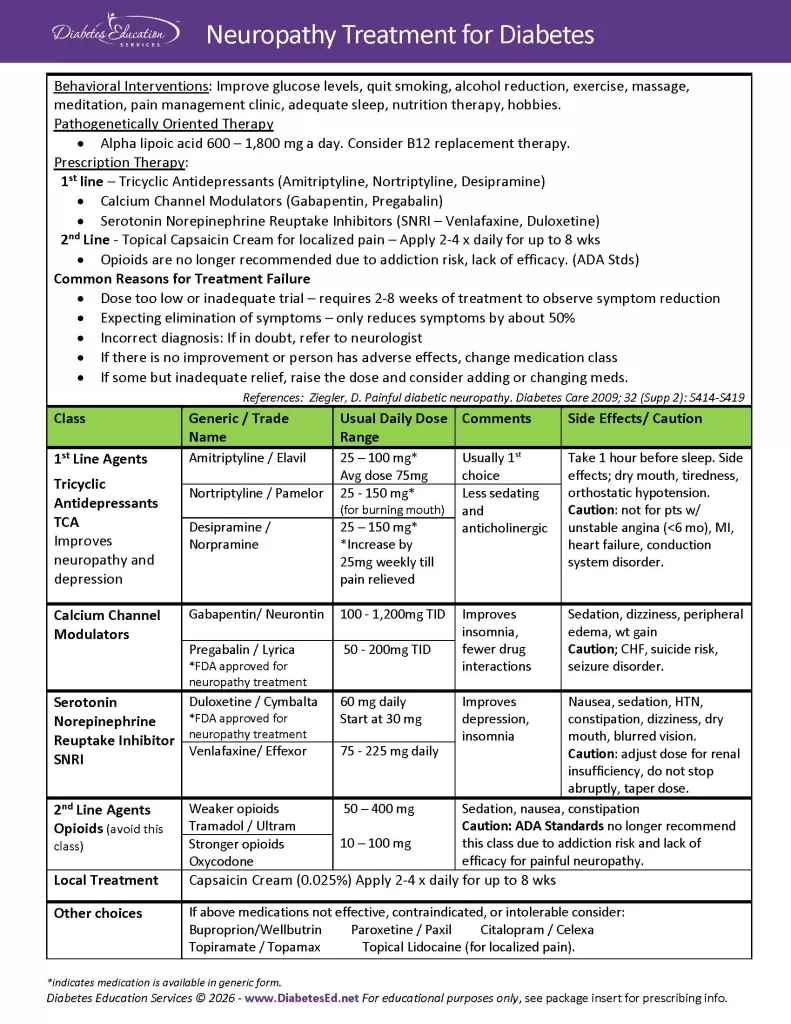
Nonsteroidal MRAs for Type 2 & Chronic Kidney Disease
As outlined in ADA Standard 11, this novel medication is indicated for people with chronic kidney disease (CKD) associated with type 2 diabetes since it reduces the risk of kidney function decline, kidney failure, cardiovascular death, non-fatal heart attacks, and hospitalization for heart failure.
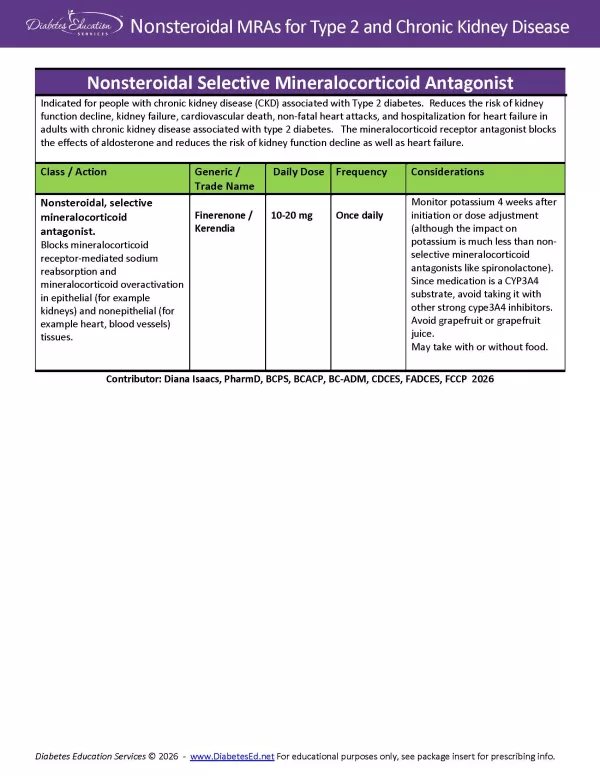
Screening & Diagnosis of Diabetes Mellitus
A one-page cheat sheet that summarizes screening, risk status, and diagnostic criteria for diabetes. Great for your office and as a study tool.
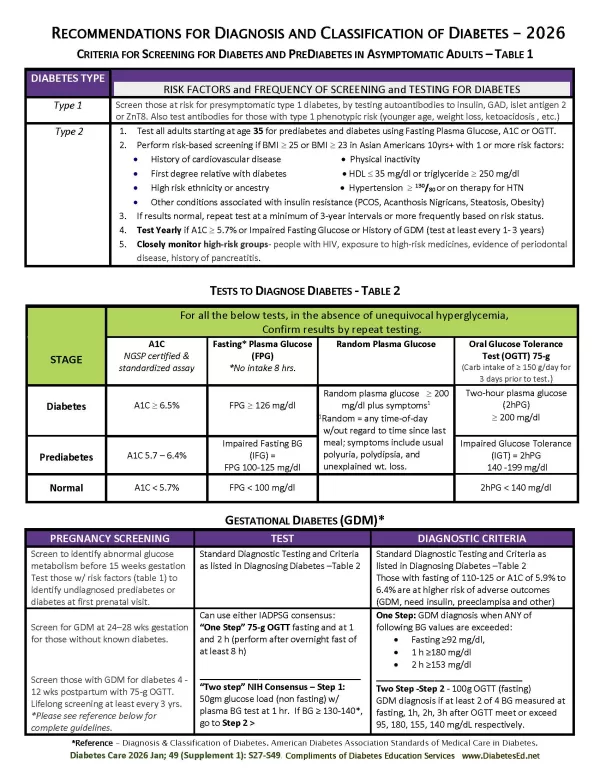
Medication Pocketcards
Glucagon Rescue Meds PocketCards
Download for FREE.
Includes 4 different glucagon treatment options plus hypoglycemia teaching info on another side. Great study tool and clinical resource.
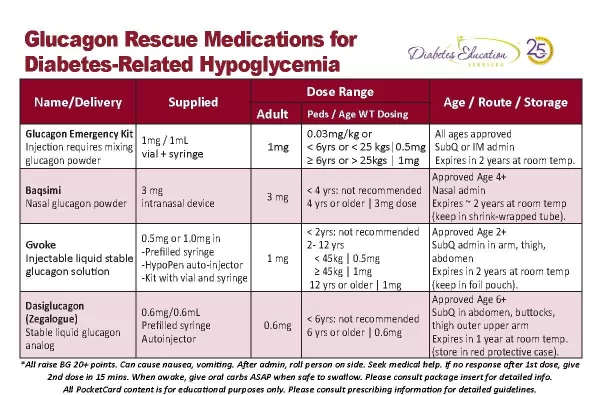
Medication PocketCards
Download for FREE.
Includes all currently available diabetes medications. Great study tool and clinical resource.
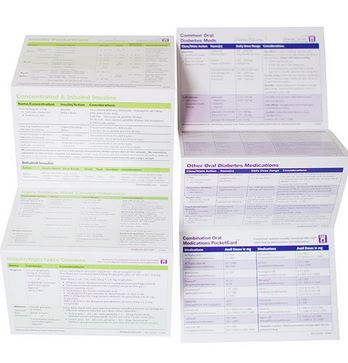
Diabetes Tech Resources
Troubleshooting CGM Accuracy
CGM accuracy can be impacted by factors and substances specific to the sensor or factors of daily living. This cheat sheet describes the different interfering substances and factors that affect CGM accuracy.
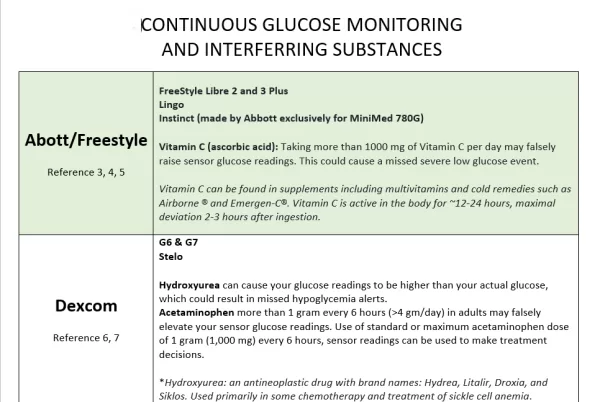
Nutrition Information
Carb Counting Quick Reference
We created this Carb Counting Quick Reference sheet based on the ADA handbook.
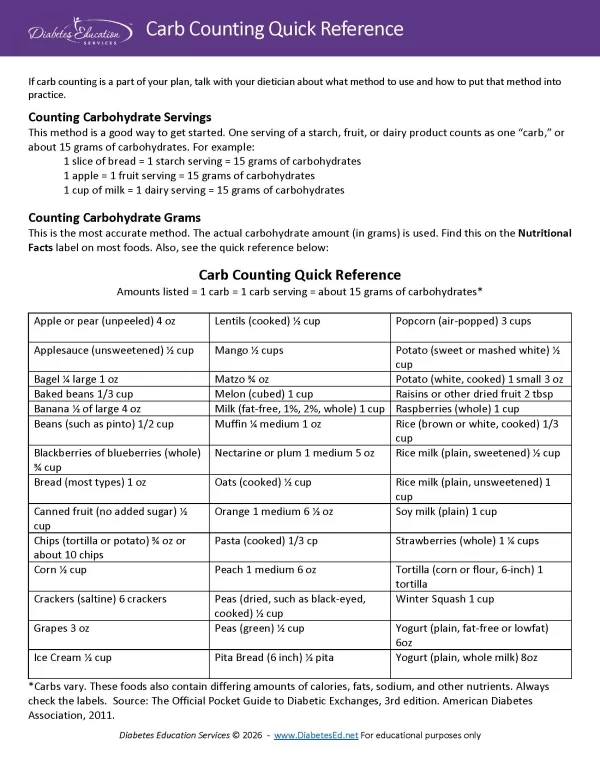
Person-Centered Coaching
12 Reframes to Help with Diabetes Distress or Burnout
This one-page sheet offers healthcare professionals and people with diabetes helpful strategies to deal with diabetes distress and burnout. Diabetes self-management can be very burdensome and loaded with big emotional responses and expectations. Please feel free to copy and share this list with people who are feeling distressed or are considering taking a diabetes “vacation.”
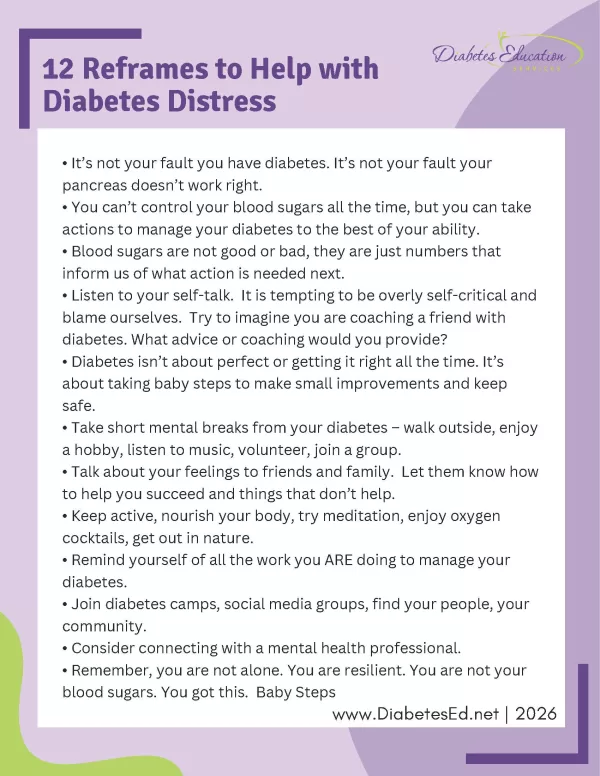
How to Succeed with Person-Centered Coaching
This cheat sheet provides a dozen simple coaching strategies for providers to help people believe in their ability to self-manage their diabetes successfully.
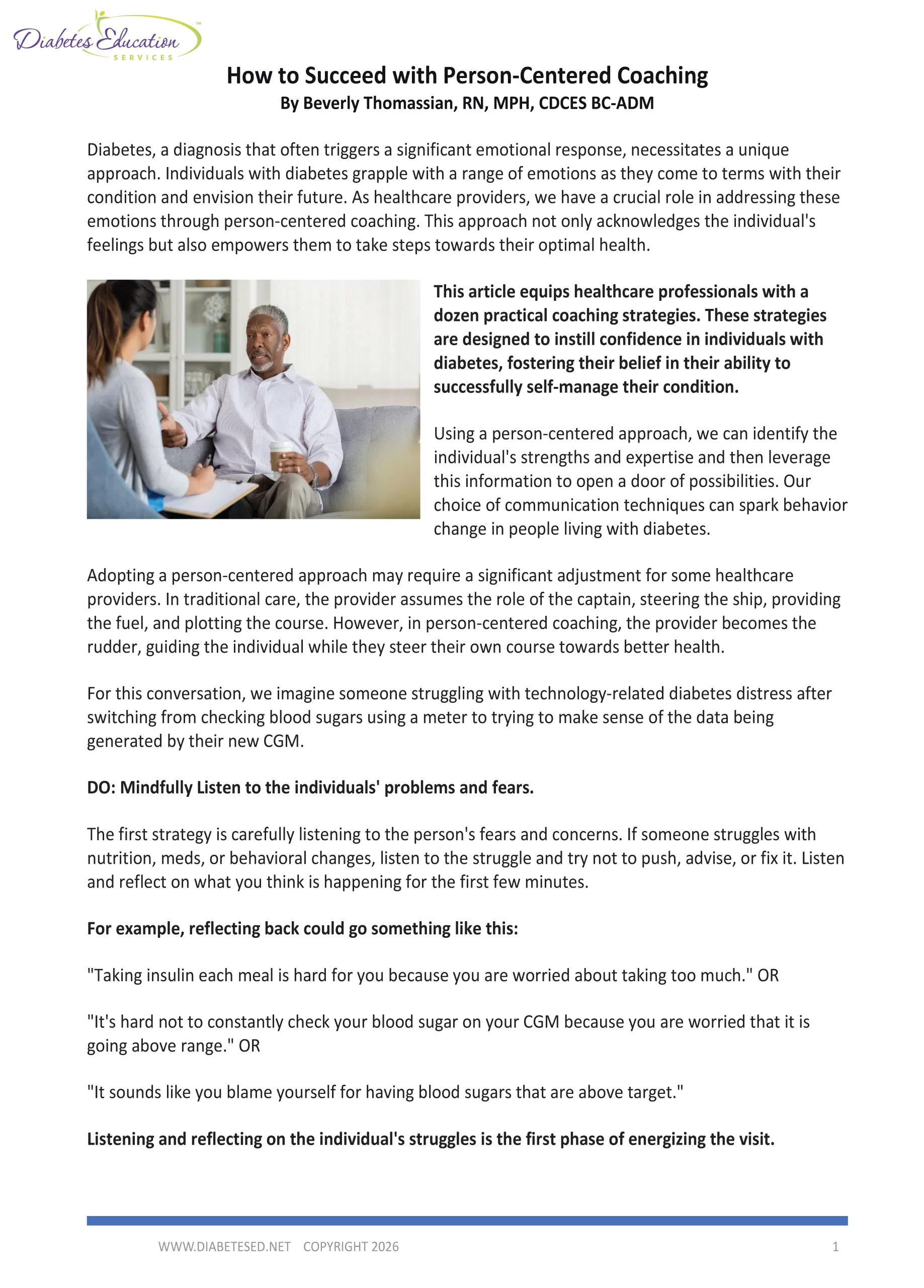
Teaching Sheets for People with Diabetes
10 Steps to Survive the Holidays
A handout that practical tips on surviving the holidays for people with diabetes. Share with your friends, participants, and colleagues!
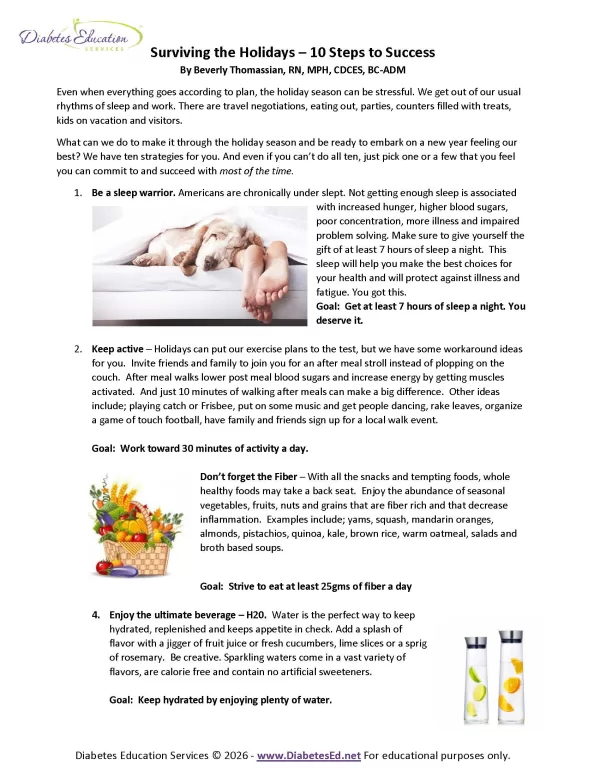
Emergency Evacuation Checklist | Customizable
A helpful way to prioritize what items to grab given different time frame limitations. We found it online and customized it for people with diabetes. It is available in Word or PDF. Thank you for sharing with your colleagues and community.
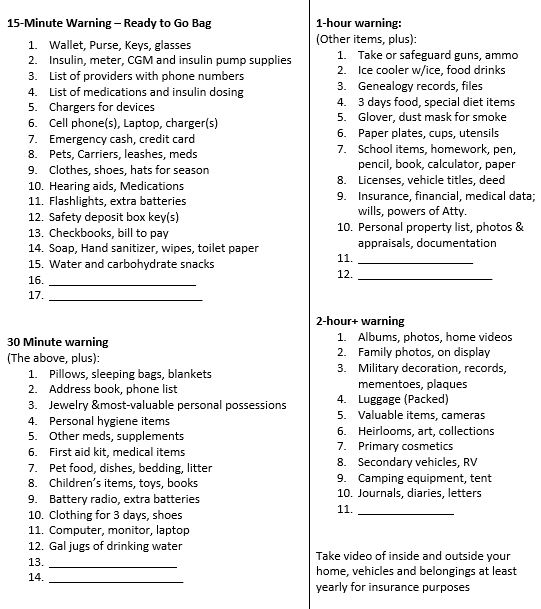
Foot Care Teaching Sheet
Steps to Healthy Feet. This handout covers the important elements of foot care for people living with diabetes with simple and straightforward language.
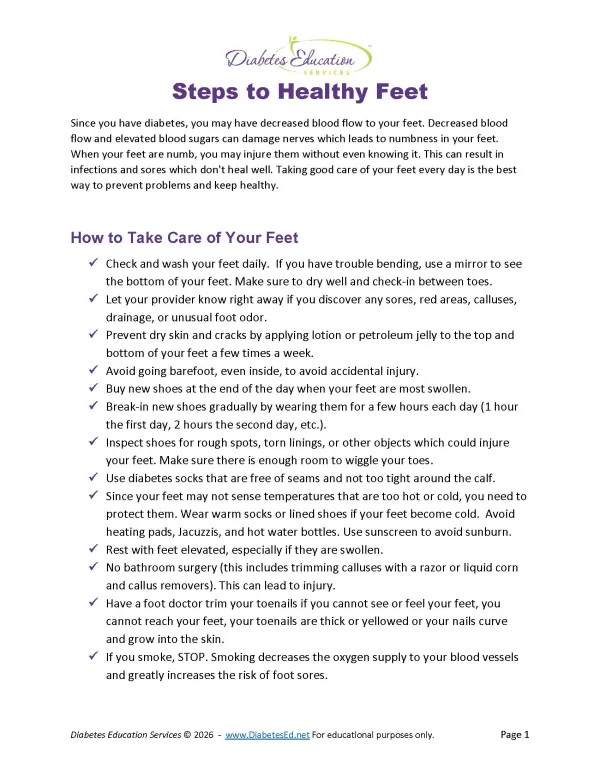
Keeping Healthy with Diabetes
This 2 sided empowerment teaching sheet summarizes the goals of care and healthy living strategies for people living with diabetes.
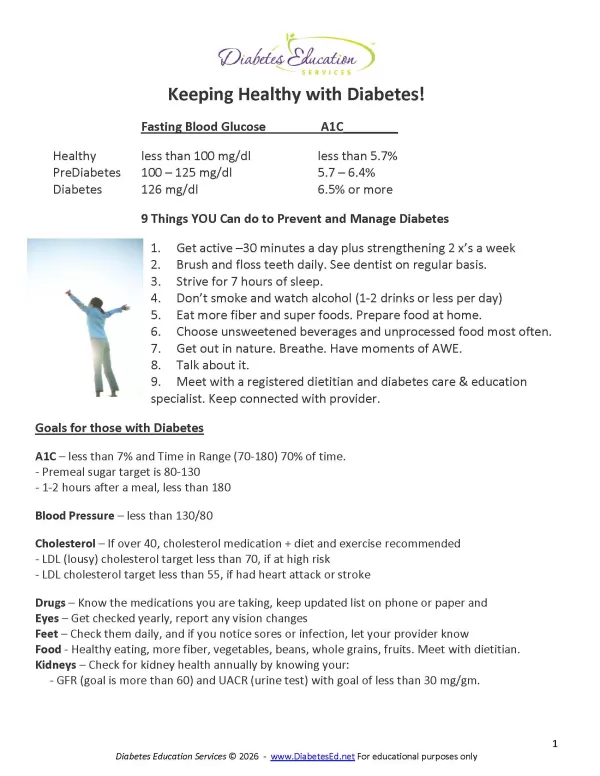
Medication Wallet Card
Add your program’s logo and provide your clients with a useful, customized document that includes contact info, a list of medications, and critical health data.
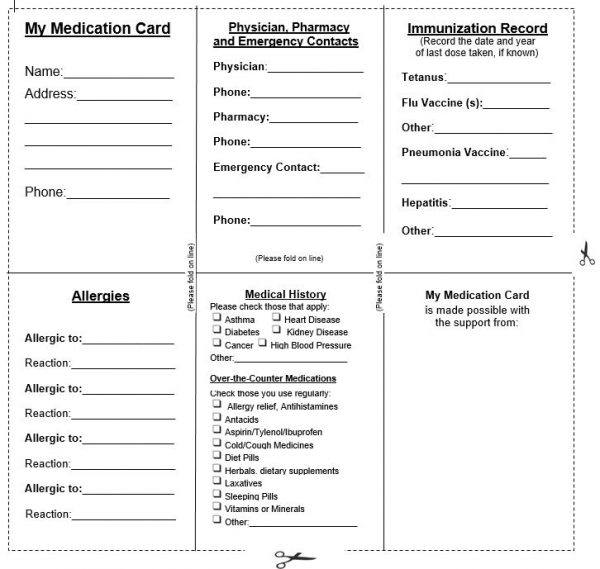
Self-Care Goal Sheet
Setting realistic person-centered goals is a critical part of providing diabetes education care and support. We have created a goal sheet that you can use in your practice to capture the next steps toward improving self-care. If you would like to customize the document, it is available in Word so you can make modifications for your practice. Or you can download the PDF, print and go.
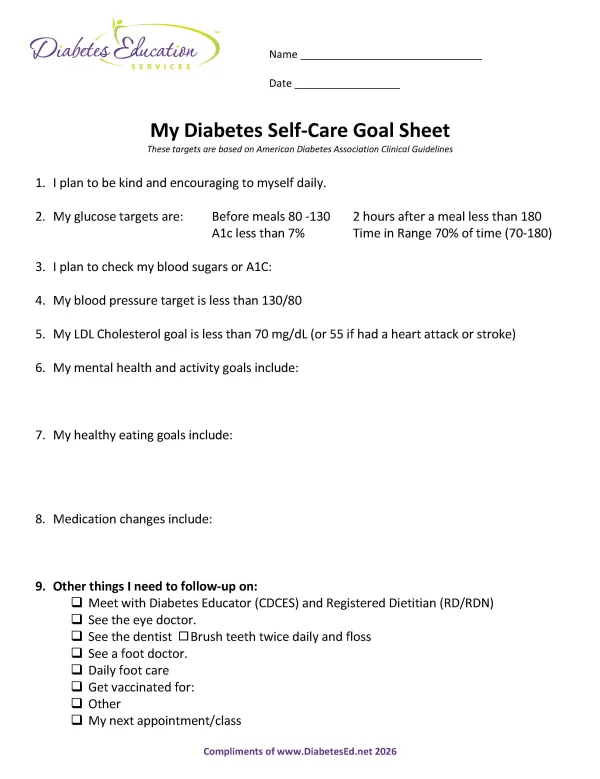
Sick Days & Diabetes | Handout
Updated to reflect the latest CDC guidelines. Reviews sick day instruction for people with diabetes.
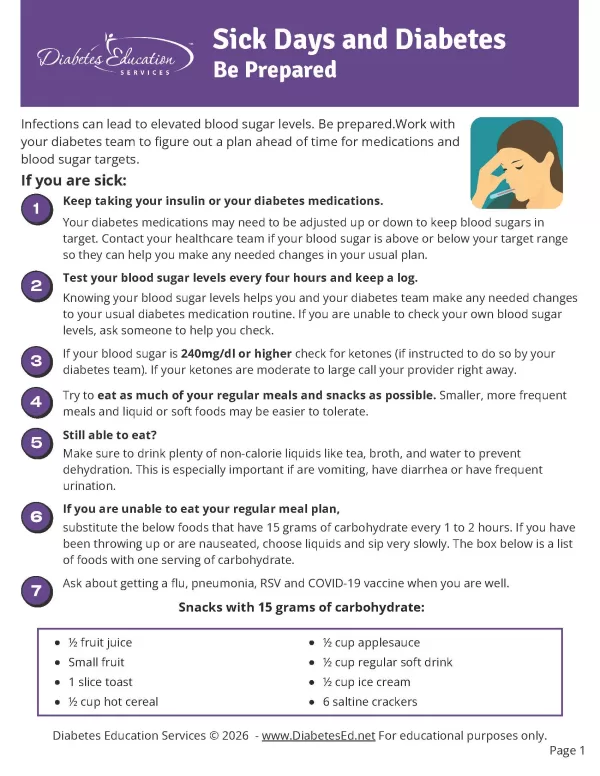
Diabetes Apps
8 Diabetes Apps Chart
A list of highly-rated diabetes apps that support people living with diabetes to reach their goals. These apps were highlighted by DiaTribe as especially helpful with improving Time in Range.
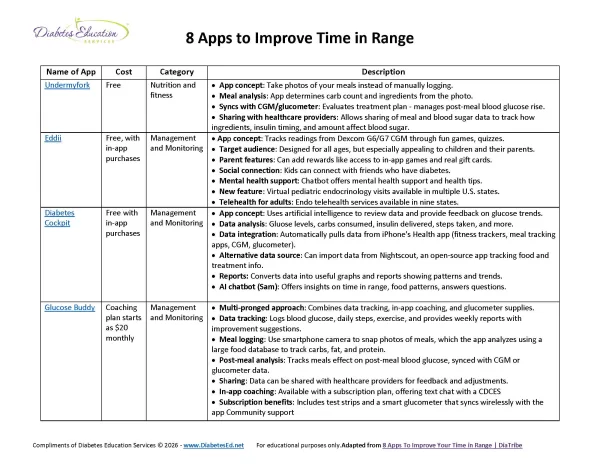
The use of DES products does not guarantee the successful passage of the diabetes certification exams. CBDCE & ADCES does not endorse any preparatory or review materials for the certification exams, except for those published by CBDCE & ADCES.
**To satisfy the requirement for renewal of certification by continuing education for the Certification Board for Diabetes Care & Education (CBDCE), continuing education activities must be applicable to diabetes and approved by a provider on the CBDCE List of Recognized Providers (www.ncbde.org). CBDCE does not approve of continuing education. Diabetes Education Services is accredited/approved by the Commission of Dietetic Registration which is on the list of CBDCE Recognized Providers.






